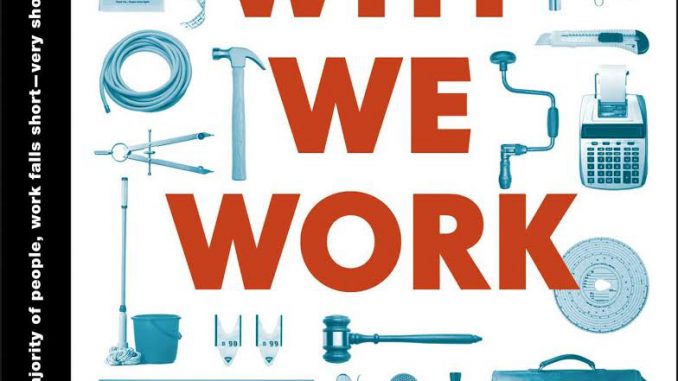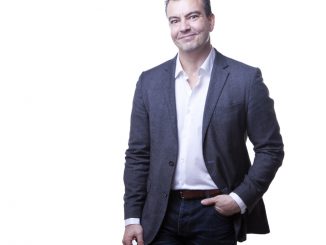
Psychologist Barry Schwartz explores the meaning and engagement that some workers feel about professions you might not expect to be fulfilling.
Why do we work? Why do we drag ourselves out of bed every morning instead of living lives composed of one pleasure-filled adventure after another? What a silly question. We work because we have to make a living. Sure, but is that it? Of course not. When you ask people who are fulfilled by their work why they do the work they do, money almost never comes up. The list of nonmonetary reasons people give for doing their work is long and compelling.
Satisfied workers are engaged by their work. Satisfied workers have a measure of autonomy and discretion in their work, and they use that autonomy and discretion to achieve a level of mastery or expertise. They learn new things, developing both as workers and as people. And most important, satisfied workers are satisfied because they find what they do meaningful. Their work may make a difference to the world. It may make other people’s lives better.
Almost everyone wants more from work than just a paycheck.
The diverse potential sources of satisfaction from work raise a very big question: Why is it that for the overwhelming majority of people in the world, work has few or none of these attributes? According to a massive report published in 2013 by Gallup, the Washington, D.C.-based polling organization, only 13 percent of workers feel engaged by their jobs. These people feel a sense of passion for their work and they spend their days helping to move their organizations forward. But almost ninety percent of adults spend half their waking lives doing things they would rather not be doing at places they would rather not be.
You might think that routinized, pay-driven, soul-deadening work is just the price we have to pay for productive efficiency. Our souls may be thinner, but our bank accounts are fatter. Or you might think that only a select few people seek meaning and engagement in their work. For the “professional class,” it’s not (just) about the money, but for everyone else, it is.
My book, Why We Work, is intended to show that almost everyone wants more from work than just a paycheck, and that the conditions of our work have a lot to say about whether more is available. We can find plenty of professionals — doctors, lawyers, teachers — who measure their success by the size of their paycheck. But we can also find plenty of non-professionals who often deviate from their job descriptions to make their daily work worth doing.
In this excerpt from the book, I describe the meaning and engagement that some workers derive from some of those professions you might not expect to be fulfilling. And here’s the real point: The fact is, when people have meaningful work, they work harder, smarter, and better, and their companies are more profitable. Given this, it makes you wonder why the heads of companies are leaving money on the table by creating de-skilled work that demeans workers.
1. Hospital custodian
Luke works as a custodian in a major teaching hospital. His job description says nothing about responsibility or care for patients and their families. He has a long list of duties, including to “collect and dispose of soiled linen” and “stock restroom supplies,” but not a single item on the list even mentions interacting with another human being. From the description, Luke could be working in a shoe factory or a mortuary instead of a hospital.
His “official” duties were only one part of his real job.
But Luke was doing a different job than his official description would suggest, as researcher Amy Wrzesniewski discovered when she and her team conducted in-depth interviews with Luke and other hospital custodians. The researchers asked the custodians to talk about their jobs, and the custodians began to tell them stories about what they did. Luke’s stories told them that his “official” duties were only one part of his real job, and that another central part of his job was to make the patients and their families feel comfortable, to cheer them up when they were down, to encourage them and divert them from their pain and their fear, and to give them a willing ear if they felt like talking. Luke wanted to do something more than mere custodial work.
What Luke sought in his work was shaped by the aims— what Aristotle would call the telos—of his organization. The telos of the hospital—promoting health, curing illness, relieving suffering—was embedded in Luke’s approach to his job. The amazing thing Wrzesniewski and her colleagues discovered about Luke and many of his coworkers was that they understood and internalized these aims in spite of their official job description, not because of it. The job they were actually doing was one they had shaped for themselves in light of the telos of medical care. Ben, another custodian, told the researchers how he stopped mopping the hallway floor because a patient who was recovering from major surgery was out of his bed getting a little much-needed exercise by walking slowly up and down the hall. Corey told them about how he ignored his supervisor’s admonitions and refrained from vacuuming the visitors’ lounge while some family members, who were there all day, every day, happened to be napping. These custodians shaped their jobs with the central purpose of the hospital in mind.
Luke, Ben, and Corey were not generic custodians; they were hospital custodians. They saw themselves as playing an important role in an institution whose aim is to see to the care and welfare of patients.
Lees twee andere voorbeelden in het originele artikel.

Tedtalk van Barry Schwartz: The way we think about work is broken, klik hier
Bron: klik hier



